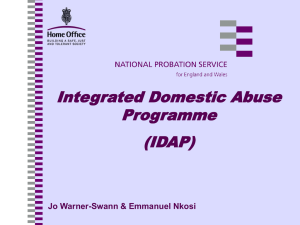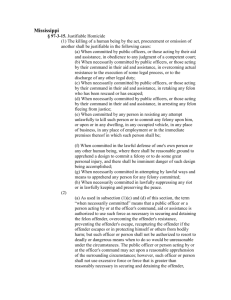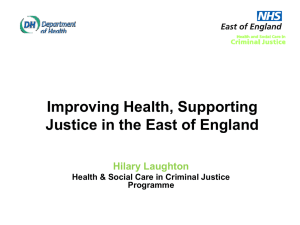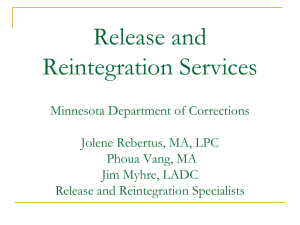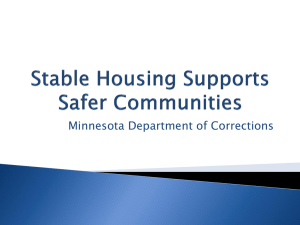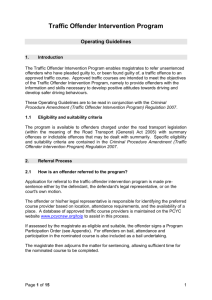Policy 2 Treatment plans and placement
advertisement
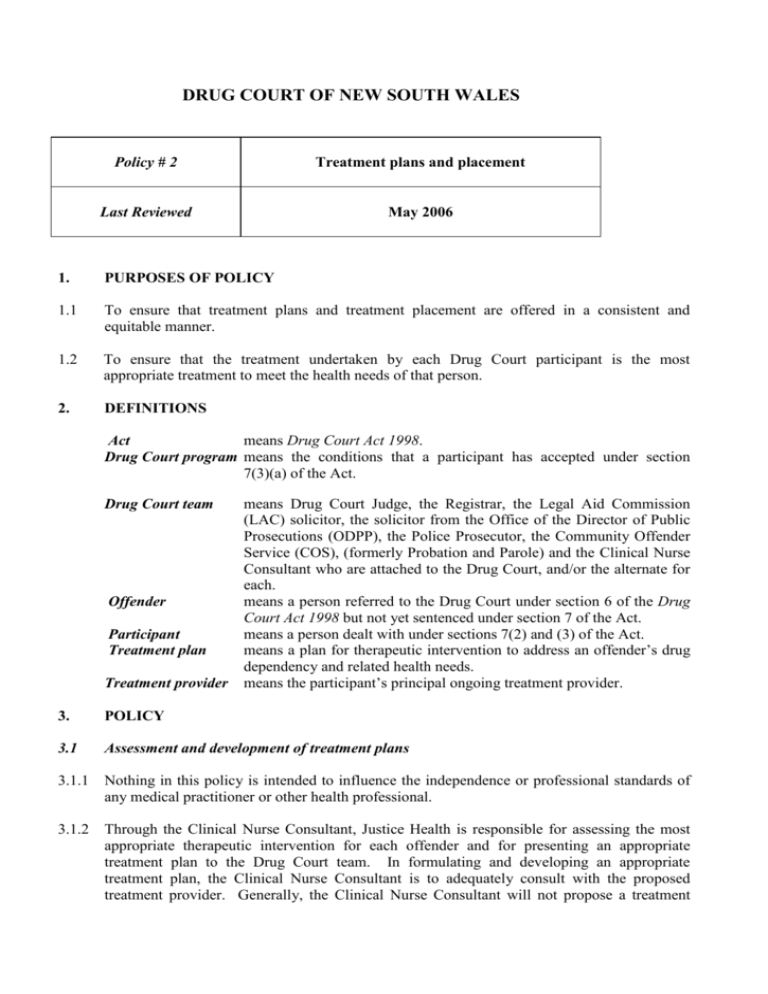
DRUG COURT OF NEW SOUTH WALES Policy # 2 Treatment plans and placement Last Reviewed May 2006 1. PURPOSES OF POLICY 1.1 To ensure that treatment plans and treatment placement are offered in a consistent and equitable manner. 1.2 To ensure that the treatment undertaken by each Drug Court participant is the most appropriate treatment to meet the health needs of that person. 2. DEFINITIONS Act means Drug Court Act 1998. Drug Court program means the conditions that a participant has accepted under section 7(3)(a) of the Act. Drug Court team Offender Participant Treatment plan Treatment provider means Drug Court Judge, the Registrar, the Legal Aid Commission (LAC) solicitor, the solicitor from the Office of the Director of Public Prosecutions (ODPP), the Police Prosecutor, the Community Offender Service (COS), (formerly Probation and Parole) and the Clinical Nurse Consultant who are attached to the Drug Court, and/or the alternate for each. means a person referred to the Drug Court under section 6 of the Drug Court Act 1998 but not yet sentenced under section 7 of the Act. means a person dealt with under sections 7(2) and (3) of the Act. means a plan for therapeutic intervention to address an offender’s drug dependency and related health needs. means the participant’s principal ongoing treatment provider. 3. POLICY 3.1 Assessment and development of treatment plans 3.1.1 Nothing in this policy is intended to influence the independence or professional standards of any medical practitioner or other health professional. 3.1.2 Through the Clinical Nurse Consultant, Justice Health is responsible for assessing the most appropriate therapeutic intervention for each offender and for presenting an appropriate treatment plan to the Drug Court team. In formulating and developing an appropriate treatment plan, the Clinical Nurse Consultant is to adequately consult with the proposed treatment provider. Generally, the Clinical Nurse Consultant will not propose a treatment plan to the Drug Court team unless a representative of the proposed treatment provider has assessed the relevant offender in person and supports the proposed treatment plan. 3.1.3 The assessment is to occur in the Metropolitan Reception and Remand Centre, Silverwater (in the case of a male offender), the Mulawa Correctional Centre, Silverwater (in the case of a female offender) or such other facility as Justice Health and the Drug Court approve. 3.1.4 In formulating, developing and reviewing a treatment plan for an offender, the paramount consideration is the particular health needs of that offender. 3.1.5 An offender or participant is to be consulted in relation to the development of his or her treatment plan. In the course of consultation, he or she is to be fully informed and advised by a qualified health care professional about available treatment options. 3.1.6 No offender or participant will be compelled to undertake a treatment plan that he or she does not freely choose to undertake. It is acknowledged that a person’s likely success on a particular treatment plan is influenced by the person’s motivation to undertake that treatment plan. 3.1.7 In formulating and developing a treatment plan, consideration is to be given to the participant’s/offender’s age, gender, cultural background, religion, proficiency in the English language and responsibilities towards dependant persons. 3.1.8 Justice Health, the proposed treatment provider and the Drug Court team will agree on a treatment plan for an offender only if that treatment plan is considered highly suitable for the offender. If the most highly suitable treatment plan cannot be implemented because no treatment place is available, an alternative treatment plan will be agreed only where that treatment plan is also considered to be highly suitable for the offender. 3.1.9 A offender or participant will not be released onto a treatment plan unless the plan ensures treatment continuity. 3.1.10 Each treatment plan is to be reviewed regularly by the participant’s treatment provider in consultation with the participant’s case manager. The Drug Court team is to be advised of the outcome of each review. 3.2 Variations to treatment plans 3.2.1 A participant’s treatment plan will only be varied where there is a good therapeutic reason for doing so. 3.2.2 A participant’s treatment plan and/or treatment provider may be varied by the Court where the participant is failing to make satisfactory progress on his or her treatment plan with his or her current treatment provider. 3.3 Termination of treatment 3.3.1 Refer to the Court’s policy on termination of programs.


